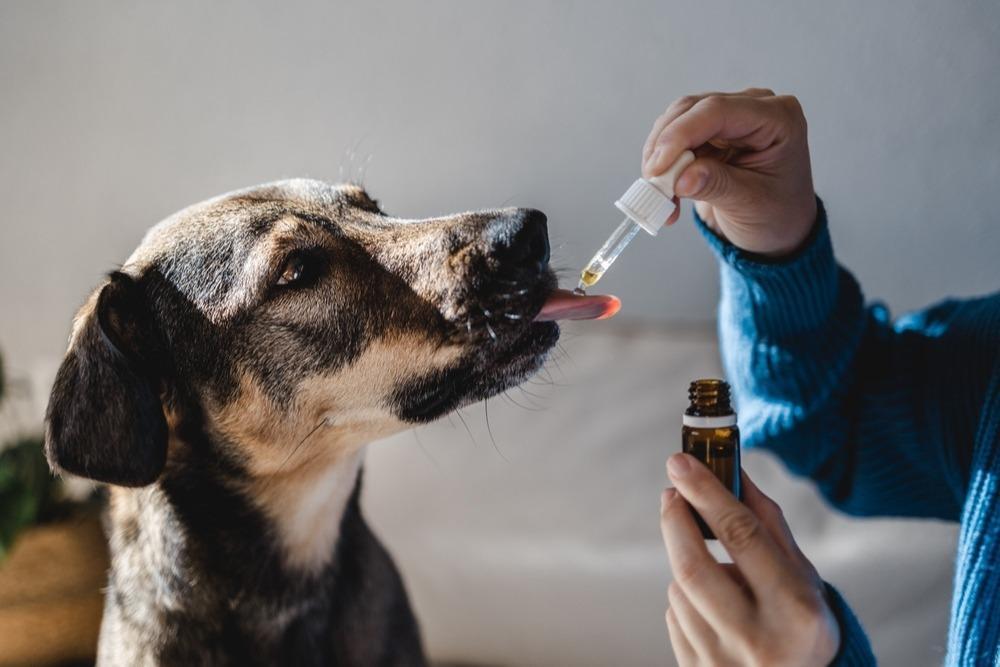You’ll have noticed that we talk a lot about vitamins and minerals here at My Pet Nutritionist. There’s a reason. For your pet’s body to do the jobs it needs to, it needs certain compounds, and that includes vitamins and minerals.
Vitamin B6 is one of the B complex vitamins, it is water-soluble and necessary for a range of functions.
Let’s take a look at it in a little more detail.
Vitamin B6
Vitamin B6, also known as pyridoxine, is a water-soluble vitamin that the body needs for several functions.
It’s significant to protein, fat and carbohydrate metabolism and the creation of red blood cells and neurotransmitters.
Vitamin B6 cannot be made by the body and so it must come from the diet.
Vitamin B6 and Behaviour
The central nervous system runs on these chemical messengers called neurotransmitters. They are like the carrier pigeons of the body. Vitamin B6 is involved in the synthesis of a range of these neurotransmitters, specifically dopamine, serotonin and GABA. As we know, dopamine is involved in the reward circuitry in the brain, serotonin is known as the feel good neurotransmitter and GABA is like the brakes of the nervous system; it helps calm things down. So, if we are looking for balanced and appropriate responses to those things experienced by our dogs, they need access to sufficient levels of the right neurotransmitter. B6 will therefore play a role.
In human studies we have linked vitamin B6 deficiency to depressive symptoms.
Findings Here
It is also linked to irritability.
Findings Here
A mild deficiency of B6 down-regulates GABA and serotonin synthesis, leading to the removal of inhibition of neural activity by GABA. Disordered sleep, irrational behaviour, and compromised cardiovascular function can result. In addition, a loss of hypothalamus-pituitary control and therefore aberrant hormone excretion.
Vitamin B6 also has a direct effect on immune function and gene transcription/expression and plays a role in brain glucose regulation.
Vitamin B6 and Brain Health
Vitamin B6 is involved in managing homocysteine levels. In many cases, high homocysteine levels are associated with cognitive impairment and decline. Deficiency in B6 is regularly linked to high levels of homocysteine found in the blood; therefore posing a risk to brain health.
Ensuring sufficient levels of B6 can therefore regulate homocysteine levels, and protect cognitive function.
Findings Here
Vitamin B6 and Eye Health
High levels of homocysteine are also associated with age-related macular degeneration and so, B6 can therefore be beneficial in protecting eye health.
As we know, B6 helps regulate levels of homocysteine in the body and in studies, when taking a regular dose of B6 supplementation, the risk of age-related macular degeneration decreased by 35-40%.
This data was derived from human studies and so we must be careful when extrapolating to pets, but it certainly provides food for thought. In addition, other B complex vitamins were supplemented, so it would be pertinent to establish if the combination was of more benefit than single supplement.
Findings Here
Vitamin B6 and Arthritis
The high levels of inflammation in the body that result from arthritis may lead to low levels of vitamin B6. There have also been studies demonstrating that vitamin B6 can help modulate pro-inflammatory responses in cases of arthritis.
Findings Here
The bottom line? If your dog is suffering with a chronic inflammatory condition, it would be pertinent to monitor their vitamin B6 status.
Vitamin B6 and Anemia
Due to its role in haemoglobin production, the most common sign of low B6 is anaemia.
Haemoglobin is a protein that delivers oxygen to cells. When there is low haemoglobin, cells don’t get enough oxygen. The result is anemia.
Signs and Symptoms of B6 Deficiency:
- Lethargy
- Abnormal heart rhythm
- Cracked lips
- Mouth ulcers
- Weakened immune function
- Inflammation of the skin
- Confusion/irritability
Food Sources:
- Pork
- Poultry
- Fish
- Organ Meats
- Eggs
As vitamin B6 is a water-soluble vitamin, it needs to be replenished daily in the body.
Risk of Depletion:
- Hormone demands – if your dog is stress, they are at risk of depletion without sufficient supply
- Undernutrition
- Malabsorption (digestive compromise)
- Pyridoxine-inactivating medications (phenobarbital for example).
Here at My Pet Nutritionist, we advocate a fresh food diet which is rich in a variety of vitamins and minerals. If your dog is suffering with a chronic condition, it may well affect their nutritional status, please check out our services if you would like to find out more.
Thanks for reading,
MPN Team
























